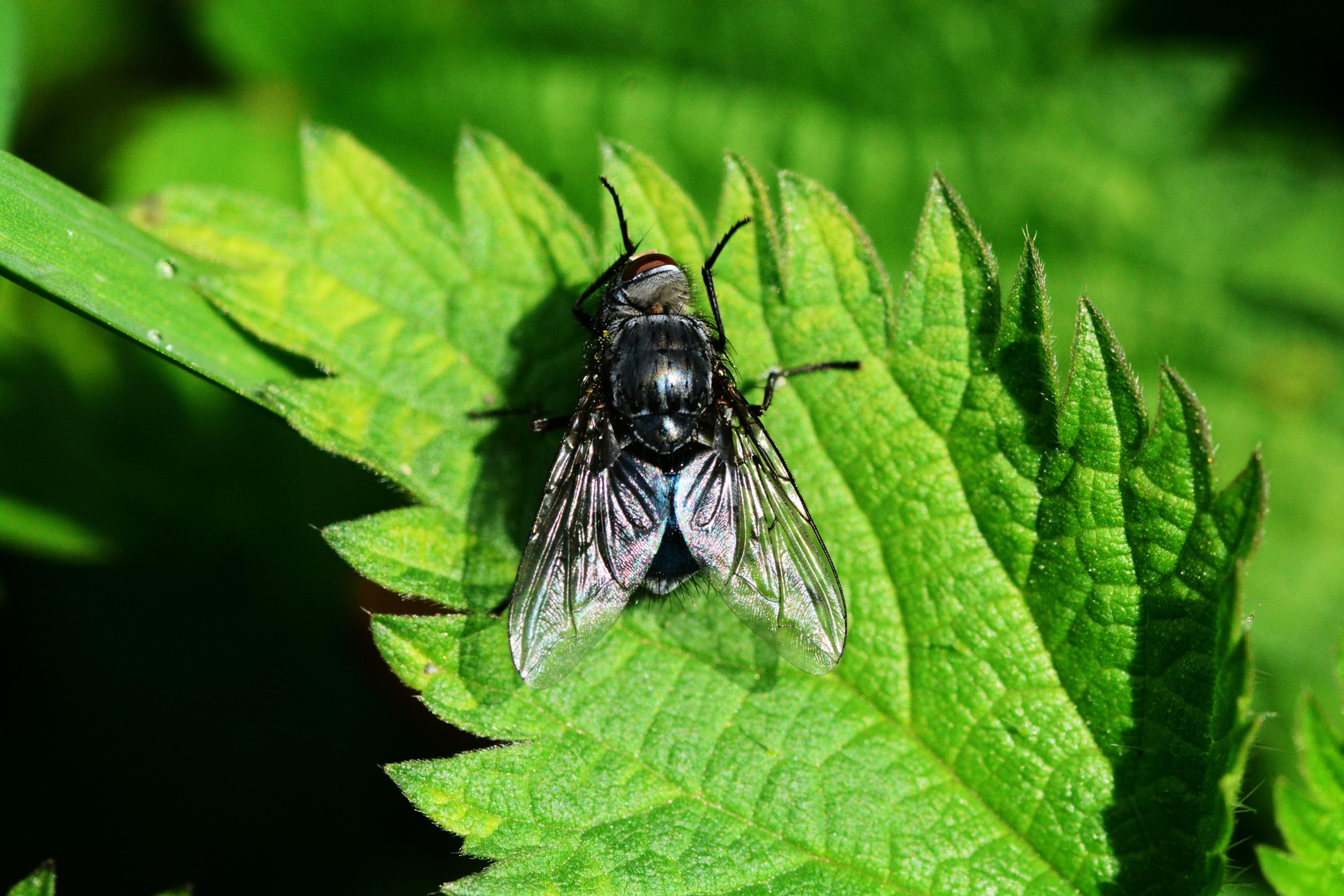Shoo Fly: How to Keep Flies Away & Protect Your Health

Lindsay Knake
| 3 min read

Most of the time, houseflies are merely annoying, and their bites can be briefly painful. However, these insects can spread bacteria and viruses through their bites.
Diseases include:
- Cholera
- Dysentery
- E. coli
- Eye infections
- Food poisoning
- Tuberculosis
- Typhoid fever
To stay safe, here are ways to keep houseflies away from your home and yourself:
Sprays and insecticides
Citronella oil spray, a distillation of an Asian grass plant, is a classic scent of summer. While Citronella oil is less effective than a pesticide like DEET, according to a study, it can provide protection from flies and other insects.
DEET is a common insecticide in use in the United States for decades to repel disease-carrying insects. When used according to recommendations, the Environmental Protection Agency says DEET is safe for adults and children for outdoor use.
Pyrethrins, an insecticide derived from some chrysanthemum flowers, are more common for indoor use, and should be used in a well-ventilated area and according to the directions.
Vinegar and dish soap
To trap errant flies in your home, try apple cider vinegar and dish soap. In a bowl, mix the cider vinegar with dish soap – enough vinegar that the concoction has a fruity smell. The sweet vinegar will draw the flies in, and the dish soap will kill the flies. Adding a spoonful of sugar could help if the flies aren’t flocking to the bowl.
Sticky traps
Sticky traps are exactly what they sound like: sheets of sticky paper that you can hang or lay in your home. They trap insects by luring them with a sweet scent, but the strong adhesive prevents them from leaving.
Use an oscillating fan
Flies prefer still air, so a simple fan can keep them away. Placing fans throughout your home and on your outdoor living spaces can help keep the unwanted flying pests away from you and your pets.
Herbs and flowers
Potting up or planting a few of the plants insects don’t like is a natural and colorful way to repel flies. Placing them in or near your home and doors can add another layer of protection.
Herbs and flowers that can repel flies include:
- Basil
- Bay leaves
- Catnip
- Lavender
- Marigold
Wear the right clothing
Wear loose, long-sleeved clothing and hats to keep flies and insects off your skin.
You can also spray your clothing with the insecticide permethrin and let them dry before wearing. Never apply permethrin directly to your skin. Some brands offer clothing pre-treated with permethrin. The insecticide repels flies, ticks, and other disease-carrying insects, and it can survive a few washes before you need to reapply.
Keep your home and yard clean
Houseflies are attracted to material in which they can lay their eggs, so it’s important to keep your home and yard clear of such materials. Flies are attracted to rotting food waste, animal feces, and manure.
Here are more steps you can take to make your home unwelcoming to flies:
- Seal your home well to prevent them from getting into garages, attics, and outbuildings.
- Turn off outdoor lights at night.
- Clean up animal feces regularly.
- Have a garbage can with a well-fitting lid and regularly take care of garbage.
- Store food in airtight containers.
- Keep your dishes clean.
- Move leaves and grass clippings away from your home.
Image: Getty Images
Related:





